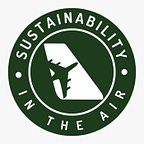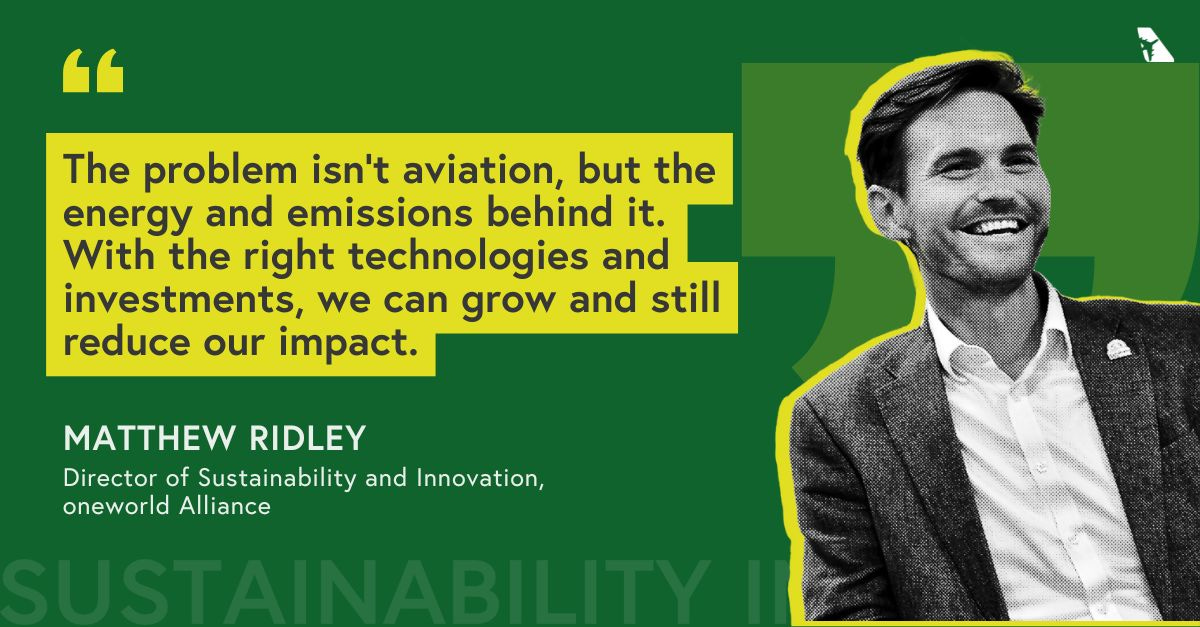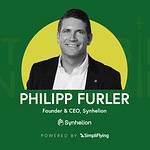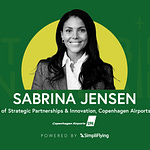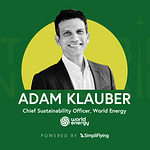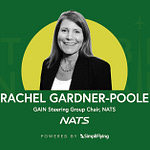In this episode of our ‘Sustainability in the Air’ podcast, Matthew Ridley, Director of Sustainability and Innovation at the oneworld Alliance, speaks with SimpliFlying CEO Shashank Nigam about the groundbreaking $150 million fund launched in partnership with Breakthrough Energy Ventures (BEV) to advance new sustainable aviation fuel (SAF) technologies.
The fund represents a new model for aviation sustainability: airlines that typically compete are now pooling resources to accelerate the development of next-gen SAF technologies. With cornerstone investors American Airlines and Alaska Airlines, and participants including British Airways, Cathay Pacific — and even non-alliance member Singapore Airlines — the initiative aims to tackle challenges no single carrier could solve alone.
Here are the key highlights of the conversation:
The car journey that sparked a $150M fund (3:48)
Why oneworld’s partnership with Breakthrough Energy Ventures matters (8:09)
Technology-agnostic investment criteria (16:41)
Next-generation focus beyond current SAF (16:26)
How Singapore Airlines joined the fund (22:39)
Reframing aviation’s sustainability challenge (32:38)
Hydrogen’s regional role (28:49)
Rapid Fire! (37:38)
Keep reading for a detailed overview of the episode.
How airline alliances are uniquely positioned to solve SAF investment challenges
Successfully backing early-stage SAF companies demands specialised venture capital experience that oftentimes stretches far beyond the traditional expertise of airlines.
The process involves evaluating countless opportunities, understanding complex technical pathways, and maintaining the discipline to pass on most prospects whilst identifying the rare breakthroughs. Moreover, building a balanced portfolio across feedstocks, processing technologies, and maturity stages requires scale that few airlines can achieve on their own.
“You need extensive experience in venture capital and a sizeable team to navigate the extensive due diligence required before finding technologies that are really worth investing in,” says Ridley. “You also need a professional venture capital mindset in terms of portfolio management and diversification.”
The solution to this hurdle, as it turns out, emerged on a car journey down the US West Coast. Ridley and Pasha Saleh of Alaska Airlines realised that by joining forces, airlines could overcome the barriers that held them back individually. Pooling resources through the oneworld Alliance made the idea viable.
“We struck on an idea that if everybody invested together, we could hire the best expertise in the world, create a much more diverse portfolio, and leverage the alliance’s geographical spread,” Ridley recalls.
This approach reflected what Ridley’s boss at oneworld, Nat Pieper, called “initiatives of scale”: identifying areas where airlines achieve better outcomes by combining forces rather than competing. “What are the things that we are better at together?” Ridley asks. “In my opinion, sustainable investing is one of those areas where you end up with better deal flow, better diversity, better opportunities to compare different technologies and invest in the best ones.”
Four takeaways from the conversation
1. Technology-agnostic approach focused on impact at scale
The oneworld BEV fund has a remarkably simple investment thesis. “It’s a completely technology agnostic fund,” Ridley explains. “The only stipulation, the only qualification that we need in order to look at something is: can it bring the cost of SAF down materially and at scale?”
This means the fund won’t favour particular production pathways like HEFA or alcohol-to-jet based on current market dynamics or regional policy preferences. Instead, investments must demonstrate genuine scalability. “They’ve got to be technologies that can really change the game in terms of sustainable aviation fuel,” Ridley says.
The portfolio is likely to include multiple technology types. “It probably won’t be one technology. It will probably be a blend of them. And some of them will probably be feedstocks and some of them will be processing technologies,” Ridley notes.
Importantly, the fund’s success isn’t measured solely by whether oneworld airlines directly purchase from portfolio companies. “If it grows the universe of sustainable aviation fuel and diversifies availability, the fund will have been successful,” Ridley explained. “If we’re growing the overall supply, the price is coming down, and more people are using SAF, it’s already been successful, whether or not we’re directly buying.”
2. Reframing aviation’s sustainability challenge
Ridley pushes back firmly against the notion that aviation must shrink to become sustainable.
“80% of the world’s population hasn’t yet taken a flight. It’s an incredible privilege and a powerful driver of economic, cultural, and social growth,” he says. “It’s not aviation that’s the problem; it’s the source of our energy and the carbon dioxide emitted by travel.”
For him, this distinction reframes the entire sustainability debate. The challenge isn’t about curbing demand for air travel, but transforming the energy that powers it. “I don’t believe aviation has to become less available to manage its environmental footprint,” Ridley explains. “With the right technologies, mindset, and investments, we can grow and still reduce our impact over time.”
Ridley points out that aviation has reinvented itself countless times before, but the fuel powering it has remained unchanged. “Since Orville and Wilbur first took flight at Kitty Hawk, every single aspect of the aircraft has changed, from the wings to the propulsion system to the materials, except one thing: it was fossil fuel propelled then, and it’s fossil fuel propelled now.”
What remains unchanged, he says, is the remarkable energy density of kerosene, the very fuel that made flight possible in the first place. “Think about the miracle of picking up enough energy in just a few minutes to take an A380 from London to Singapore or LA. Kerosene allows that to happen.”
The goal now isn’t to replace this efficiency, but to decarbonise it.
3. Breaking traditional alliance boundaries
One of the most intriguing aspects of the oneworld BEV fund is how it attracted Singapore Airlines, despite the carrier not being a oneworld Alliance member. This represents a genuine departure from traditional alliance thinking, which typically limits cooperation to member airlines.
The inclusion of a non-member airline underscores how the fund is built around shared ambition rather than alliance loyalty. By opening the door to partners with aligned sustainability goals, it sets a precedent for wider industry cooperation.
“We are looking forward to further announcements in the future,” Ridley hints, noting that now the fund is public and operational, it’s easier to demonstrate its value to potential partners.
One of the fund’s defining features is its inclusive design that ensures every participating airline, large or small, could access the same strategic benefits. “The thing that we wanted to do was make sure that everybody, whether they were a small investor or a large investor, got the same strategic benefits that they needed from the fund,” Ridley explains. Larger carriers with established venture teams gain broader deal flow, while smaller ones get, as he puts it, “an absolute rocket booster… they’ve gone from zero to being part of a really interesting fund managed by some of the best people in the world.”
4. Next-gen technologies complementing current SAF strategies
The fund deliberately targets different opportunities than existing airline SAF programmes.
“The technologies we’re targeting within the oneworld Breakthrough Energy Ventures Fund are the next generation,” Ridley explains. “What are the technologies that can take us beyond 5 or 10 per cent, scale effectively, and change the trajectory of airline decarbonisation?”
This distinction is especially significant as the industry faces two simultaneous challenges: meeting near-term compliance requirements whilst building the foundation for long-term decarbonisation. Current investments in proven production pathways help airlines meet immediate targets; the oneworld BEV fund seeks to address the latter.
This distinction is crucial. Aviation must meet today’s compliance goals while also preparing for deeper carbon reductions over the next few decades. In 2021, oneworld member airlines committed to purchasing over 350 million gallons of SAF through traditional agreements to support current requirements. Meanwhile, the oneworld BEV fund seeks to invest in technologies that will make future fuels more affordable and scalable.
“We’re not going to reach 2050 and magically get to net zero. We need to support the market that exists today whilst building the market we can buy from in the future. Our member airlines have well-established SAF purchase programmes, and the fund aims to help maintain that pipeline of suppliers for the 2030s and 2040s.”
Get our new book
Our new book Sustainability in the Air: Volume Two is now available for purchase on Amazon. Learn more about the startups, strategists, and sceptics working to close the gap between growth and green ambition.
‘Sustainability in the Air’ is the world’s leading podcast dedicated to sustainable aviation. Through in-depth conversations with top aviation leaders, we break through the clutter and provide a clear roadmap for a net-zero future.


